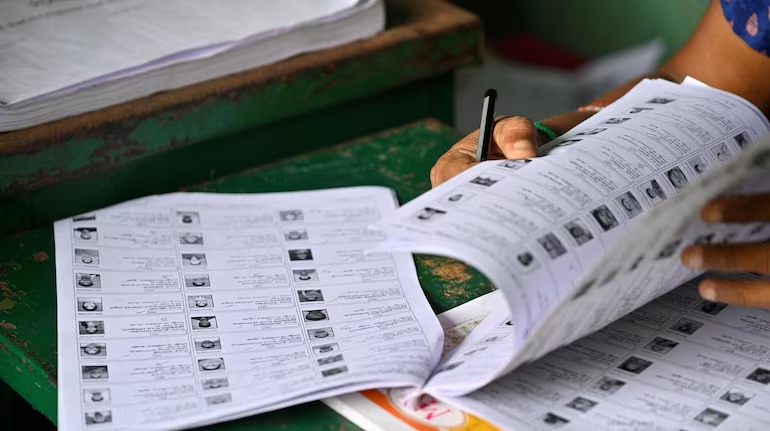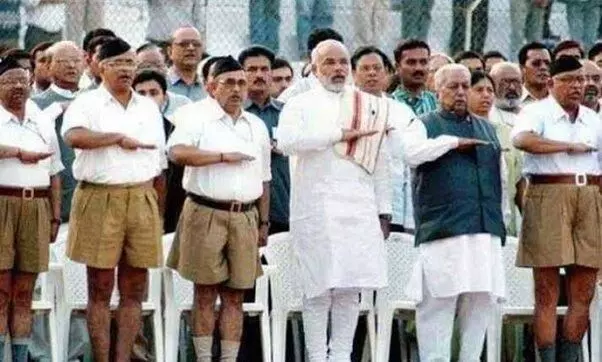
Madhya Pradesh HC calls ban on RSS men ‘mistake’, lauds lifting it
text_fieldsThe Madhya Pradesh High Court has applauded the Central government's recent move to lift a 58-year-old ban that prohibited government employees from joining the Rashtriya Swayamsevak Sangh (RSS). This decision has sparked a mix of reactions across the political spectrum and the broader public.
The ban, initially imposed in November 1966, was a point of contention for decades. The court's remarks came during the disposal of a petition by Purushottam Gupta, a retired Union government employee, who challenged the ban in September.
The bench, consisting of Justices Sushruta Arvind Dharmadhikari and Gajendra Singh, expressed regret that it took the government five decades to recognize and correct what it termed a "mistake."
"It took almost five decades for the Central government to realize its mistake; to acknowledge that an internationally renowned organization like RSS was wrongly placed amongst the banned organizations of the country and that its removal therefrom is quintessential," the bench noted, referencing the international reputation of the RSS.
The RSS, a prominent Hindutva organization and the ideological parent of the ruling Bharatiya Janata Party (BJP), has faced bans three times since India's independence. Critics have long accused it of promoting Hindu supremacy and intolerance towards minorities.
The organization was placed on the list of groups that government officials could not be associated with during a period of intense scrutiny and political turbulence in the 1960s and 1970s.
The High Court questioned the rationale behind the original ban, asking what empirical evidence or reports led to the government’s decision to categorize the RSS as communal or anti-secular. "What was the empirical report, statistical survey, or material, that led the then government of the day to arrive at an objective satisfaction that involvement of Central government employees with the RSS?" the court queried.
Despite the court's endorsement of the government's decision, the move has been met with significant criticism, particularly from the opposition Congress party. Jairam Ramesh, a senior Congress leader, condemned the lifting of the ban, arguing that the RSS's involvement with government employees undermines secular principles.
“In 1966, a ban was imposed – and rightly so – on government employees taking part in RSS activities,” Ramesh stated. He suggested that recent tensions between Prime Minister Narendra Modi and the RSS may have influenced the timing of the decision.
The court directed the Department of Personnel and Training and the Union Home Ministry to display the order on their websites prominently and to notify all government departments within 15 days.
The RSS has defended itself against allegations of promoting religious intolerance, arguing that it is a patriotic organization dedicated to the cultural and moral upliftment of the nation.























